The right communication in marketing and advertising is your first bridge towards nurturing trust among your clients and partners. An apt choice of words can do wonders for your brand – sets the tone for what your brand is all about, builds the recall value your business needs, and establishes a brand image you want to be associated with.
Therefore, the impact of having the right communication can be immense. No matter how creative your idea is, no matter how excellent your product is, if it is not put across in a succinct manner, it won’t create any ripples. Effective Communication is not only critical for the customers but also pivotal in creating an understanding among partners, collaborating agencies and clients. In this era of rapid globalization and one world, we increasingly work with people of different ethnicities, nationalities, and language backgrounds. For that reason, it is important to use the right words and expressions that are carefully crafted and picked to have clarity and a common understanding. Even if the words make sense to you, the nuances might still not be clear to a person from a different part of the world. Even within the group of people communicating in a common language on a daily basis, say English, the expressions may differ as greatly as football in the US and UK.
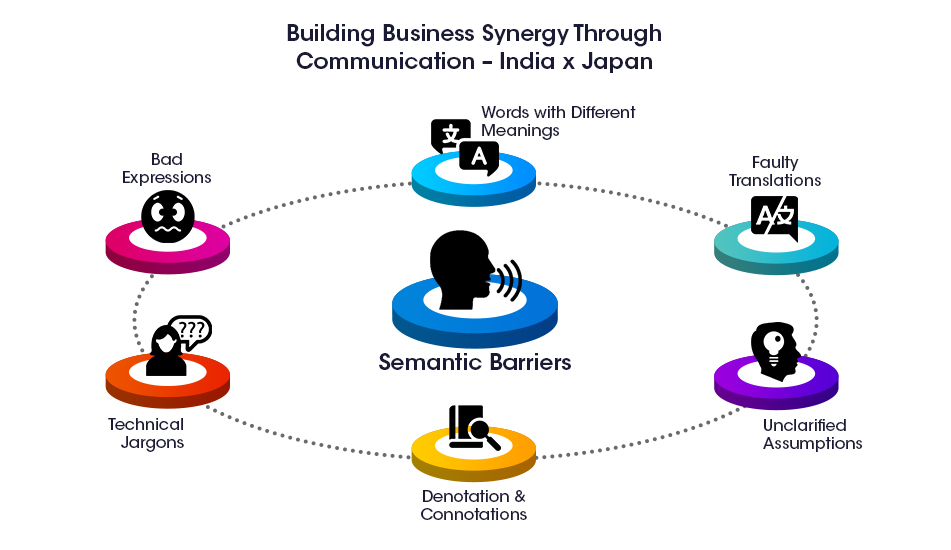
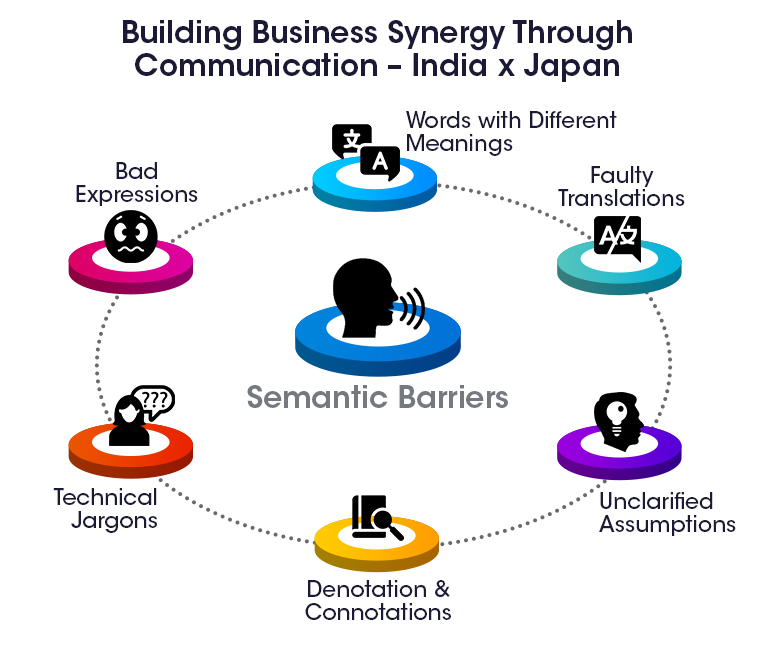
What is the point of using complex vocabulary when it doesn’t communicate well with your global partners or audiences? Someone who feels intimidated by your words might not ask questions or investigate further, which, in turn, means they will quickly lose interest. That’s because using complex language creates a negative impression. We don’t realize how idiom heavy or how many acronyms we use on a regular basis and when communication is indirect through emails or documents (written communication), it all turns to gibberish when translated. It’s perfectly fine to use simple short sentences, it may not sound stylish but it gets the point across.
The Case for Cross-Cultural Competence
Our sensibilities and collective consciousness differ greatly because of cultural and historical background, even if we speak a common language. Therefore being sensitive towards the culture and background of your customers, clients and partners and incorporating the sensitivity in the communication creates positivity and trust. For instance, being to the point and direct might sound efficient and clear to US audiences but it might be considered rude or aggressive to Asian people.
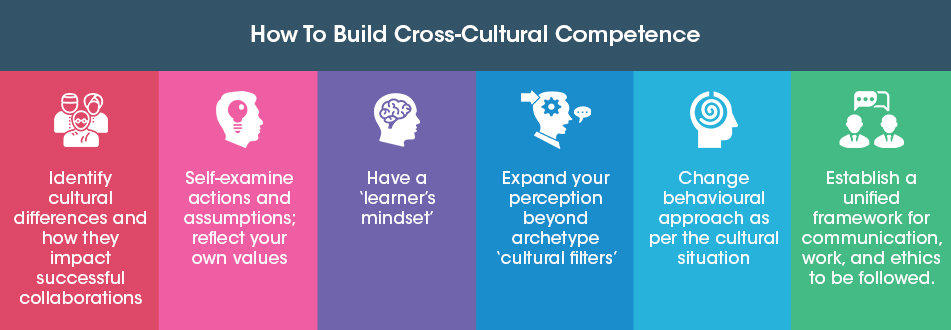
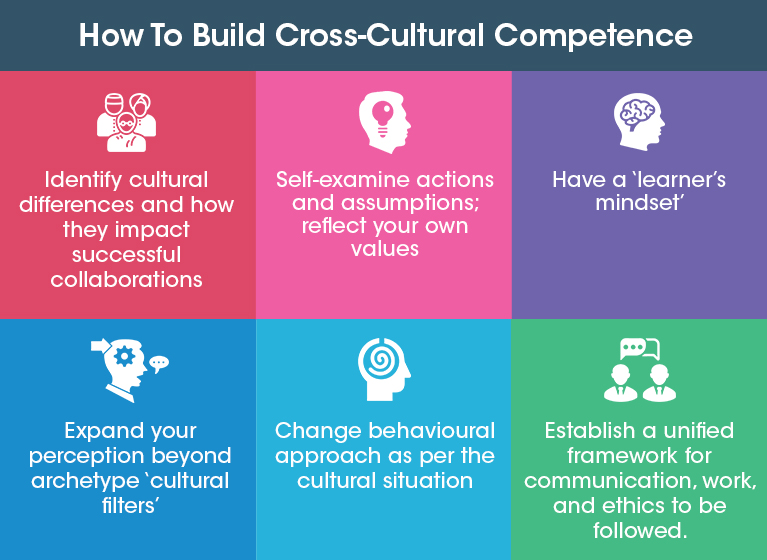
As a communication tool, language is the bond that ties the customer to the product or service. It should give clarity to build up trust, belief and loyalty. Therefore ideas or products don’t necessarily need to be tweaked; rather the language needs to be sensitive to the audience. The evolution of business language from snobby and bourgeois to short and direct has certainly been rapid meanwhile acronyms and gen Z lingo has also made significant inroads due to the sudden rise in startups and young people in prominent roles. However, it is still a good idea to keep communications simple and clear to avoid any miscommunications with global partners, clients and audiences. It is better to sound like a simpleton than a dothraki!
Business Etiquette Comes To The Fore
With the increasing presence of Japanese companies and businesses in the Indian market, there is a high chance of interaction and exposure to their business practices and style. Japanese value Hierarchy. Age & status (within the company) has a high impact on almost all social interactions. The use of vocabulary itself differs based on the person to whom it is addressed. The show of commitment and respect to culture, respecting hierarchy, and addressing people correctly goes a long way in building trust and relationships.
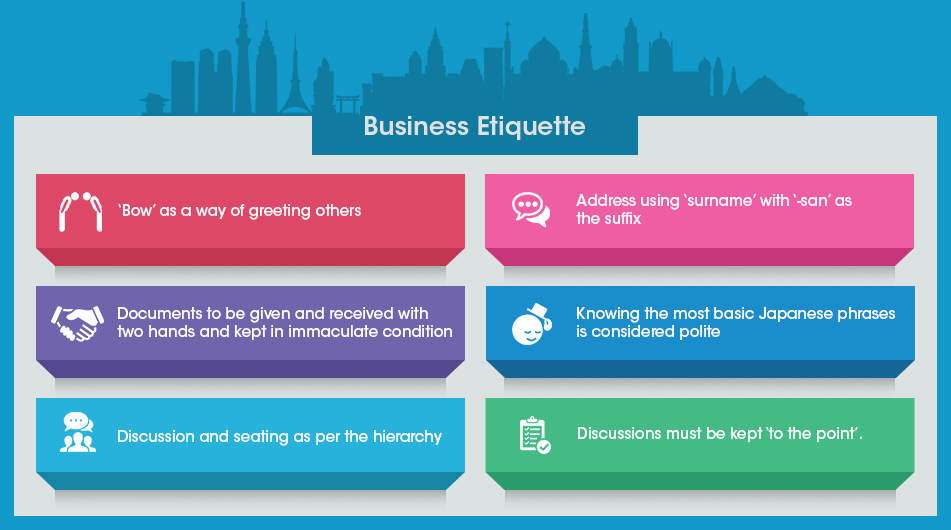
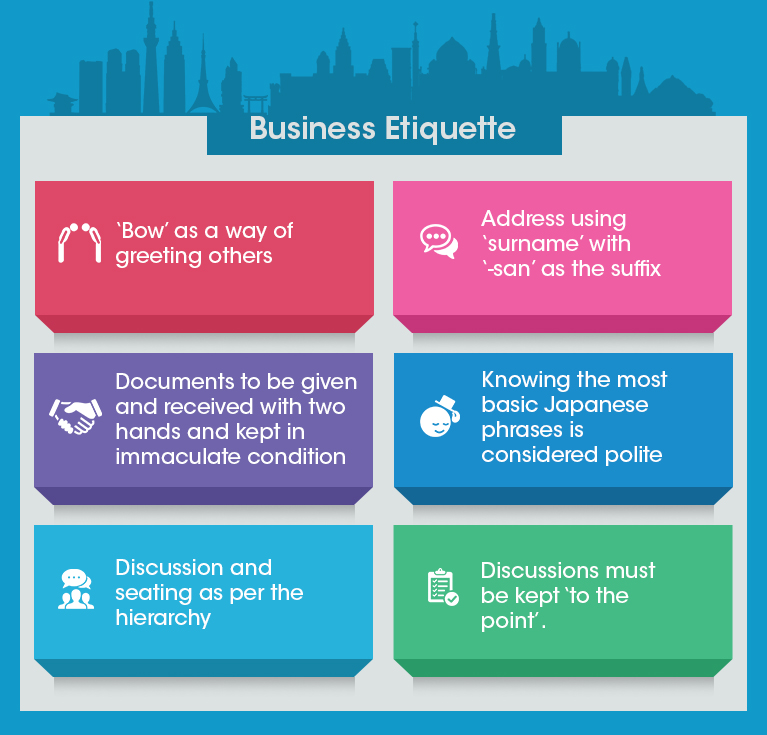
When communicating with Japanese people, it is better to understand and acknowledge vast linguistic differences between the languages and thus making your points simple, clear and detailed. There are a lot of indirect communication and non-verbal cues that make up the conversation as well.
Japanese have a saying, “Silence is golden”. Understand the importance of silence.
In a study published by JETRO this instance is highlighted in the survey, ‘The Japanese plant manager of a food manufacturing company in France has put it this way – “When French want to say 100 things they will verbalize 150 things. When Japanese say 70 things, they are trying to get the other person to understand 100.”’
Being a highly contextual language, not everything is said or written down. Therefore, understanding your audience and practicing appropriate communication is essential for building trust and long term relationships. Be patient and sincere, show respect, and take time to listen and understand the other. Along with that, Use simple and clear vocabulary, and show flexibility and openness in your communication for a lasting collaboration.
All things said and done, when communication leaves no room for confusion, it can be as effective a marketing tool as any.
At AdGlobal360, the Hakuhodo philosophy of Sei-Katsu-Sha is quintessential to the way we do things. This holistic view of looking at consumers as Sei-Katsu-Sha or “People that live lives” is the DNA of Hakuhodo DY group. To best understand the needs and requirements of clients it is imperative to understand the background, culture and collective consciousness as a group to come up with solutions which serve them the best. That is why our marketing innovation and solutions are data-driven while keeping our customers as individuals, not data points.
Planning to start your brand’s Digital Transformation? Here, here, let’s talk about it over a cup of freshly brewed coffee.
Loveleen is a Japanese language expert with 10+ years of experience working on projects with multicultural, multilingual teams that involve strengthening business operations. She is also an Avid reader and Language enthusiast who loves to travel and learn about new cultures, cuisines and history.






Leave a Comment